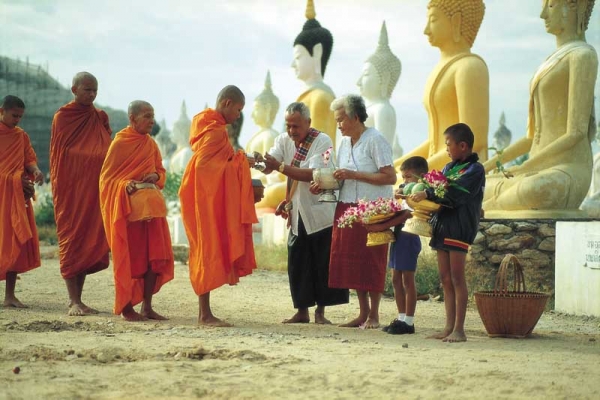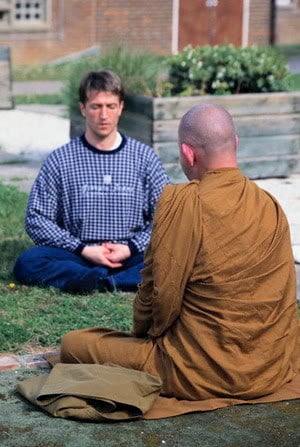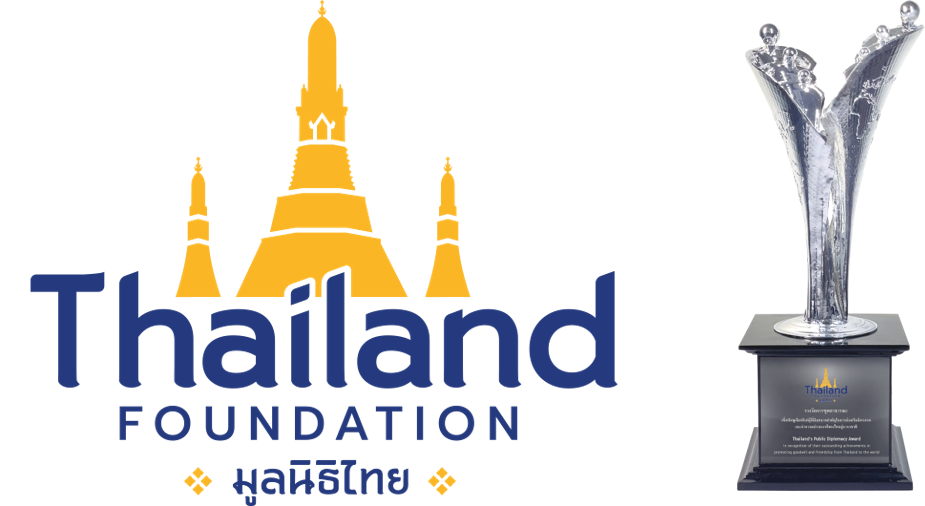The Thai characteristics of respect, compassion, and openness are formed, in great part, from the spiritual values of the Thai people. These spiritual values reflect a complex blend of Buddhism, Brahmanism-Hindusim, and traditional animistic beliefs. Buddhsim, in particular, played a very important role in helping the Thai people to recognize the ever-changing nature of life and develop an attitude of respect and compassion for other beings, humans and non-humans alike.
Buddhism is a religion based on the teachings of the Buddha, an Indian spiritual teacher who lived around 4-5th BCE. The term “Buddha” translates to “Awakened One”, reflecting the character of the Buddha as a compassionate teacher who offered his wisdom to the world. The Buddha’s teachings contain two layers: those aimed for householders and members of mainstream society, and those aimed for individuals who have relinquished the household life. There are teachings focusing on material benefits and others focusing on deeper, spiritual benefits. For lay followers he stressed compassion, non-violence, and happiness etc. here and now; and for renunciants he revealed the fruits of practice accessible in this lifetime such as happiness, purity, enlightenment, peace, and liberation.

Buddhism has played a great role in shaping Thai society since ancient time. On the grand scale, the religion provides the Thai nation with a stabilizing force, which is expressed through means such as religious festivals designed to strengthen communal ties. The Monarch, Thailand’s head of state, is also a professed Buddhist who act as the upholder of Buddhism and other recognized faiths within the nation. On a more personal scale, Buddhist teachings has come to shape the very way the Thai people think and act. Children are taught from a very young age to pray, meditate, and cultivate good deeds. “Tam boon” is a Thai term which translates roughly to “making merit”. The term refers to the act of cultivating good deeds through positive actions such as helping others, speaking truth, and restraining oneself from negative desires. Acts of “tam boon” are regularly performed at all stages of the Thai people’s lives, from birth to death. It is believed that, by cultivating good deeds, one can lift oneself and others from sufferings.
With a way of life that is deeply rooted in Buddhism, Thailand has become the birthplace of many great Buddhist teachers and traditions. Masters of the Thai Forest Tradtion such as Ajahn Mun and Ajahn Chah, for example, have gathered a number of followings both at home and abroad. One tradition that remains popular is mindfulness meditation. This practice promotes within an individual the ability to attain ultimate realization as well as other mental and physical benefits. Today, many Buddhist temples across Thailand continue to provide free meditation courses to all interested participants.

Thailand Foundation invites you on a journey to explore the world of Thai spiritual values and meditation. Through this exploration, we hope that you will find an answer to your troubles or, at the very least, gain a new perspective on the nature of life.


